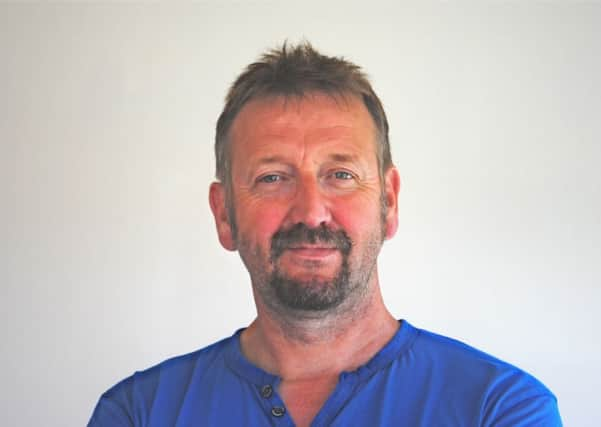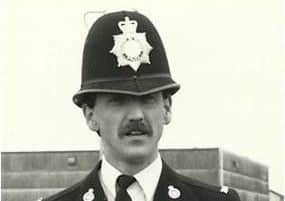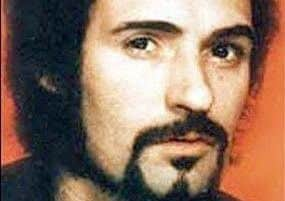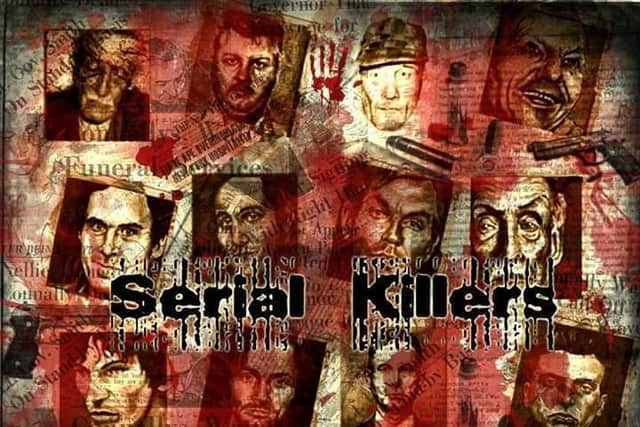Meet the man who gets inside the heads of serial murderers


FBI profiler Robert Ressler based one of his books on this famous quote and was a modern pioneer in serial killer profiling.
But Britain has its own serial killer profiler – Paul Harrison who is now touring various venues around the country with his talk ‘Night - Interviews with a serial killer.
Advertisement
Hide AdAdvertisement
Hide AdPaul’s story is shocking, but it explains why he became a profiler and where it led him.


Paul said: “As a child I was abused. My father would lock me in a cupboard under the stairs which was a precursor to attacking me.
“I didn’t know or understand what was going on. Sitting in the pitch black I thought I must have been naughty and I blamed myself.
“But my brother said ‘you do know I’ve been through the same thing and it’s not your fault’.
Advertisement
Hide AdAdvertisement
Hide Ad“I was only five or six but it was a lightbulb moment. I thought ‘if it’s not me it must be a problem with my dad’. I made notes on his manner, the shifts he was working, the cigarettes he was smoking and these notes were to keep myself safe but that is what is known as profiling.


“I joined the police force because I wanted to help other people and understand why people did what they did.
“The same criminals would reoffend again and again, be arrested, charged and jailed, then released and be back doing the same thing.
“I wanted to understand what was behind that. I asked them about their crimes, geography, family, to find out more about them.
Advertisement
Hide AdAdvertisement
Hide Ad“This was in the 1970s when profiling was unheard of. I was building profiles of people.


“I read the police review on profiling work in the USA on repeat offenders.
“I wrote to the FBI and said ‘this is what I’ve been doing in the UK and can you give me some pointers.’
“It turned into phone calls every night of the week.
“It progressed into a life changing move. The childhood issues I had defined the professional route I took.
“I wanted to confront and beat the monster.
Advertisement
Hide AdAdvertisement
Hide Ad“Robert Ressler was the man to go to at the FBI behavioural science unit.
“He was my first contact and was such an inspiration.
“He came to Bramshill Police College in 1974 talking about repeat offenders.
“It was almost like a TV series, he said. The term serial killer was first quoted in a book by an author but Robert Ressler is often credited with coining the term ‘serial killer.’
“Robert Ressler was a real mentor, you could ask him anything. If you were trying to profile a series of crimes as long as you laid it out he could put it back together.
“He would point and go through it all with me.
Advertisement
Hide AdAdvertisement
Hide Ad“My perception of Robert Ressler was he was an enigmatic man who was often in the shadow of John Douglas, who is often seen as the public face of the Behavioural Science Unit.
“Nowadays if there is a series of crimes, the sole official body police forces go to is Lee Rainbow at the Home Office.
“He does profiling but he is rarely used.
“In 1984 I went over to Quantico. I’ve interviewed serial killers including John Wayne Gacy, Charles Manson and a lesser known one called Hadden Clark.
“I do discuss them in my talk at the venues I go to.
“I was interested in the psyche of them, what it was like to kill, how did it happen, details that were not made public knowledge.
Advertisement
Hide AdAdvertisement
Hide Ad“The focus on my talks is also on the families left behind including the families of the offenders.
“Their lives are destroyed because communities ignore them.
“They are the people that get forgotten.
“Your life changes when you or your family member commits a crime or is a victim of a crime.
“We never used to go back and see the victim’s families or the families of the offenders, they were more or less trapped in the house and told ‘take these pills’ . They are the invisible victims.
“I was at a talk in Lancashire and a family member of a murder victim came and said ‘can I thank you so much because we are forgotten about.”
Advertisement
Hide AdAdvertisement
Hide AdPaul has dealt with some curious cases, none more so than the case of Robert Maudsley who is in Wakefield High Security Prison.
He said: “He was jailed as a 16-year-old for murdering the man who sexually abused him.
“In prison he was housed with paedophiles and he repeatedly told the authorities ‘not to leave him with these people.’
“One day he snapped and killed two more people. He cut open one of their skullcap’s and put a fork into the brain, a bit like Hannibal Lecter, the fictitious serial killer seen in films.
Advertisement
Hide AdAdvertisement
Hide Ad“He became a serial killer in prison. He was sentenced to life in prison and is now in the basement of the prison in a glass cell.
“He has been there since the late 1970s. There is no natural light and he has been in there for 25-30 years.
“He writes letters to anyone, asking if his imprisonment can be reviewed. He wants to go back into normal prison life.
“I wrote letters to the Home Secretary and the Queen but I didn’t get a reply.
Advertisement
Hide AdAdvertisement
Hide Ad“Most serial killers come from a dysfunctional family, they hate authority, they may have been abused sexually or physically and they start creating their own worlds to deal with things.
“These people didn’t just wake up in the morning and become serial killers. I have a database of 680 offenders and I note down every trait, every issue down to shoe size to create that knowledge database for police.
“It has turned into a massive monster. There is no real difference in serial killers across the globe, they always come from a dysfunctional family background, troublemakers, it is a vicious circle.
“It is a spiral down and there is no-one to stop it.”
Paul, in his 50s, is now retired from the police and living back in Yorkshire, where he makes a living as a best-selling author and speaker. Paul Harrison is heading to Lancaster Grand on Thursday, May 23, 7.30pm to give a talk called ‘Night-Interviews with a serial killer.’
Advertisement
Hide AdAdvertisement
Hide AdHe has interviewed more than 70 of the world’s worst serial killers and mass murderers to gain insight into their psyche.
You will hear some of the more controversial conversations he had with Britain’s and the world’s most terrifying killers - and why the Yorkshire Ripper was ‘scared’ of him.
Sad, frightening, and at times, funny, he discussed how serial killers perceive themselves, their victims, and their actions.
As a consultant on the subject, he regularly works with authors, and film and television production companies.
He is the author of 34 books, mainly true crime.
Advertisement
Hide AdAdvertisement
Hide AdVIP tickets are £40 to meet Paul Harrison for a photo opportunity and receive a signed copy of his book, and the talk is £20.
Call Lancaster Grand box office on 01524 64695 to book. For more information visit paulharrisonauthor.co.uk.